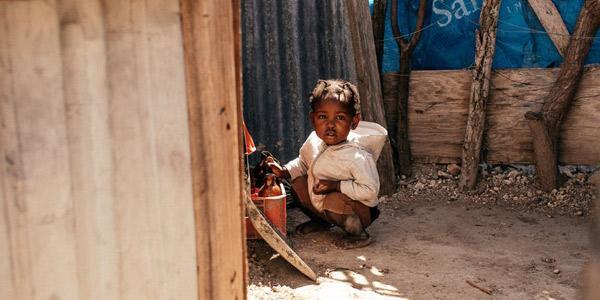New global health research to reduce the impacts of Covid-19 across low- and middle-income countries
- Wits University
Wits Health Consortium divisions - PRICELESS-SA, Agincourt and Ezintsha - secure grant in association with Harvard T.H. Chan School of Public Health.
The global health research grant will be used to measure unanticipated opportunity costs of South Africa’s Covid-19 response for children, mothers, and people living with non-communicable diseases (NCDs).

The grant is awarded to three collaborative Wits entities within Wits Health Consortium (WHC) in association with the Department of Global Health and Population Harvard T.H. Chan School of Public Health.
The Wits grant beneficiaries include PRICELESS SA (officially the South African Medical Research Council Centre for Health Economics and Decision Science-PRICELESS SA); Agincourt (the South African Medical Research Council/Wits Rural Public Health and Health Transitions Research Unit - Agincourt); and Ezintsha (a sub-division of Wits Reproductive Health and HIV Institute – Wits RHI).
Dr Atiya Mosam, Public Health Medicine Specialist, Senior Researcher at PRICELESS-SA and project lead on the National Institute for Health Research (NIHR)/UK Research and Innovation (UKRI) Global Effort on Covid-19 (GECO) grant project awarded to the Wits Health Consortium divisions, said: “Health systems across the world have had to pivot suddenly and with great speed in order to address Covid-19. Although this may have been effective in containing the pandemic, it has not been without consequence to the burden of disease and the health services that existed pre-pandemic. In South Africa, service delivery and access to care are constrained, even under non-pandemic conditions, and it therefore vital that the impact of Covid-19 on healthcare and the burden of disease is measured, so we can work toward a more effective and resilient health system under all circumstances."
Through a mixed-method, multidisciplinary study, these Wits Health Consortium researchers will investigate how Covid-19 has impacted the supply and demand of routine health services, specifically those related to non-communicable diseases, as well as maternal and child health, in both urban and rural settings.”
The project will quantitatively measure the impact of Covid-19 on routine preventive and curative health services, from supply and demand side perspectives, through a time series analysis of health service data.
The researchers will also qualitatively evaluate the views of the community and healthcare workers on health service access and delivery. These results will enable policymakers to make evidence-based decisions regarding resource allocation that are also responsive to community needs and priorities.
About the National Institute for Health Research/UK Research and Innovation Global Effort on Covid-19 (GECO) grant
The grant awarded to Wits is one of 12 made by the NIHR in partnership with UKRI for new research projects specifically aimed at tackling the multiple health consequences of the pandemic in low- and middle-income countries (LMICs).
The new research spans more than 18 countries across Africa, South America and South East Asia and covers topics such as transmission and infection control, and how people are affected by the disease in different settings and their long-term outcomes, including the risk of neurological problems. Other projects focus on the indirect consequences of the pandemic, for example on mental health, tuberculosis, and provision of HIV care and other health services.
The 12 projects, which have received nearly £7.6 million of funding, focus on four priority Covid-19 research topics highlighted by the World Health Organization COVID-19 Global Research Roadmap: epidemiology; clinical management; infection prevention and control; and health system responses.
In addition to its national role, the NIHR supports applied health research for the direct and primary benefit of people in low- and middle-income countries, using UK aid from the UK government.
Dr Lesong Conteh, chair of the funding committee GECO Health Research funding call and deputy chair of the Independent Scientific Advisory Group for NIHR's Global Health Research Portfolio, said: “Coronavirus does not respect borders, and the impact of the pandemic is being felt across the globe. These varied multidisciplinary new research projects will directly benefit people in low- and middle-income countries, provide learning opportunities globally, and complement NIHR and UKRI’s cross government approach to funding Covid-19 research in the UK.”
UK Research and Innovation (UKRI) works in partnership with universities, research organisations, businesses, charities, and government to create the best possible environment for research and innovation to flourish.

